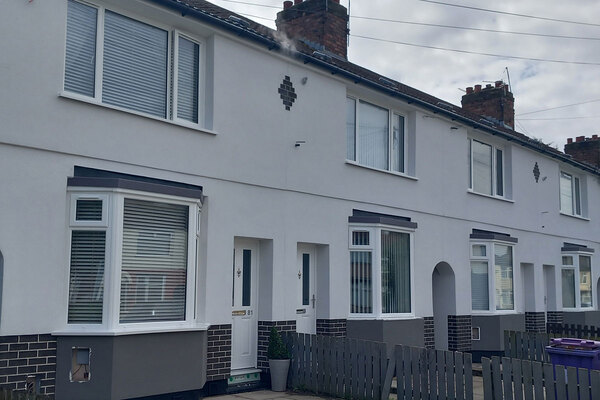Sustainability-linked loans 'not always stacking up' for social landlords
Sustainability-linked loans (SLLs) do not always give housing associations cost benefits that are “proportionate” to the work required to monitor and report against targets, a survey has found.
SLLs, which offer borrowers favourable loan terms in return for meeting key performance indicators related to sustainability, have been used widely in the social housing sector.
According to a survey carried out by consulting and financial services firm Newbridge Advisors, just one in 10 respondents thought the cost benefits of setting up and monitoring SLLs were comparable to the environmental, social and governance (ESG) outcomes.
The survey was based on 28 responses from English and Welsh housing associations and six from lenders, along with interviews with several respondents.
All housing association respondents reported that SLLs had “limited to no impact” on improving ESG outcomes for residents.
The survey found that the benefits of SLLs lay in the wider awareness of ESG work and metrics internally, and their role as a stepping stone to other forms of green finance.
But for many providers, “the cost-benefit analysis on taking out SLLs is not always stacking up”, the report said.
While housing associations “unanimously” felt that the discounted loan terms were not “material and proportionate” to the work needed to report against SLL targets, lenders said there was little room for movement on margins. The reasons for this included accounting rules that prevented further discounts, existing low interest rates for sector lending, and the need to treat other borrowers outside the sector consistently.
“All banks said that social housing loans were already working from a very low base margin, not leaving much space to go further, despite this being the key and biggest ask from the social housing sector,” the report said.
Housing association respondents suggested lenders could contribute to the costs of monitoring and reporting on SLLs, discount revolving credit facilities or provide more substantial interest savings. They also called for consistency from lenders in lending agreements.
Anup Dholakia, director of treasury at SNG, said: “Whilst there has been encouraging nascent success in bringing sustainable finance into the social housing sector, there remains elements of duelling banjos in the approach taken by lenders and borrowers, particularly in respect of value exchange.”
The report “articulates key areas which interested stakeholders can collaborate on to further support and develop better social outcomes in this space”, Mr Dholakia said.
The report also called for improved strategy and target-setting for SLLs and “adequate” governance mechanisms among housing associations, while urging lenders to consider reducing banking, third-party assurance and legal costs.
Overall, 38% of housing associations said they would enter into new SLLs, while 43% were undecided.
The lenders surveyed said they had “an overarching positive impression of social housing’s alignment to ESG, in comparison to other sectors”, but that they expected to see more robust ESG strategies in the housing sector.
Janani Paramsothy, associate director at Newbridge Advisors, said: “We know that sustainability and net-zero ambitions can’t be achieved without the right mix of funding, skills and technology. Our research shows that organisational culture and strategy have an equal role to play.
“SLLs still have a role to play in helping to address the housing crisis, as well as hitting net-zero targets.”
Caroline Barr, head of sustainability expertise UK at Dutch lender ABN AMRO, added: “ABN AMRO is dedicated to supporting the UK social housing sector and this report underscores the importance of collaboration in advancing sustainability, paving the way for meaningful progress through partnerships with housing associations.”
Great Places, one of North West England’s largest social landlords, recently agreed £225m in new sustainability-linked loans to build more homes and improve its stock.



